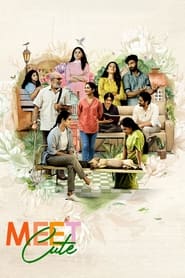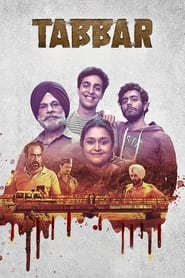Sony Liv TV Series - Page 4
-
Freedom at Midnight
2024
star 7.8Freedom at Midnight is the electrifying story of India's struggle for independence. Based on the bestselling book of the same name, it recounts the partition of India and Pakistan, and the religious and socio-political dynamics of the era. -
Chalo Koi Baat Nahi
2021
Chalo Koi Baat Nahi
2021
A sketch comedy show that gives a satirical twist to a streak of issues and challenges faced by the common people in India, on an everyday basis. -
Shrikant Bashir
2020
Shrikant Bashir
2020
Shrikant Bashir is an edgy action-drama series that showcases the partnership of two ideologically & ethnically different individuals working for the Surgical Operation Team (SOT) a premium intelligence agency to solve crimes of national threat. SOT is led by the dynamic duo Shrikant Mahatre and Bashir Khan, who cannot see eye to eye. Through the series, we see how these two contrasting personalities come together bending their personal differences for the greater good of the nation. -
Black, White & Gray - Love Kills
2025
Truth is never black or white. A high-profile case of serial killings takes an unexpected turn when forbidden love and deception come into play. In a world where love can kill, uncovering the truth is more dangerous than ever. -
Brinda
2024
star 7Young, socially awkward yet morally grounded SI cadet Brinda stumbles upon a brutal murder with a chilling modus operandi. As the killer slips through her grasp, she faces personal and bureaucratic turmoil, but the hardest challenge is the moral reckoning that could define her career and conscience. Will Brinda uphold justice, or lose herself in the chaos closer to home? -
Victim
2022
star 8Four different people fall victim to their situations and must face the consequences of their actions. The choices they now make will define their outcomes. -
The Waking of a Nation
2025
star 7‘The Waking of a Nation' explores the events surrounding the Jallianwala Bagh massacre through the eyes of Kantilal, a fictitious member of the Hunter Commission. When General Dyer orders his troops to open fire at a gathering in Jallianwala Bagh, Kantilal takes it upon himself, with his life under threat, to uncover the dark conspiracy that led to the massacre. -
Bada Naam Karenge
2025
star 7.5Rishabh and Surbhi, two young individuals, find themselves at the crossroads of an arranged marriage. The story unfolds in two timelines: one in Mumbai, in the past, and another in Madhya Pradesh, where their families meet. In Mumbai, they find themselves alone in his room due to the lockdown, creating a pivotal moment in their relationship. In the present, Rishabh is hesitant to reveal his past with Surbhi to their families, his being a much more traditional one, fearing disapproval. -
Shantit Kranti
2021
star 3A humorous coming of age story of three boys in their late 20's who decide to take a trip to Goa to seek solutions for their existential problems and instead end up in a meditation retreat in Lonavala. -
Celebrity MasterChef India
2025
Celebrities from different walks of life - actors, singer and more - don their chef's hats and showcase their culinary skills to win the coveted MasterChef title. -
Meet Cute
2022
star 6Meet Cute takes you through five instances of Two strangers, unexpectedly, find solace in each other’s company while navigating through tricky phases in their lives, helping them look at themselves and their loved ones in a different light. -
Kafas
2023
star 6.7A middle-class family sees a brighter tomorrow when their son meets with a life-changing career opportunity. But this transition only unravels a web of trauma, raising poignant questions about wealth, power, and morality. -
Tabbar
2021
Tabbar
2021
A retired policeman’s family dinner gets interrupted by the gun trotting brother of Jalandhar’s most powerful man, who thinks the family has stolen his drugs. The scuffle sets up a transformative journey for every family member. -
Manvat Murders
2024
Manvat Murders
2024
Seven murders; Unsolved for over one & half year. Will the ace cop from Mumbai, Ramakant Kulkarni be able to bring Justice? -
Project 9191
2021
star 6The year is 2031. In a New India – of towering smart holograms and drone superhighways – hard-boiled Cyber Crime detective Saajan Kundu is called out of retirement when a self-driving taxi is hacked and ordered to kill an anonymous human victim. Saajan begrudgingly joins forces with estranged partner Laxmi Suri, a whip-smart AI scientist, to comb the modern backwaters of Goa for the killer. -
Love J Action
2021
Love J Action
2021
Love is not just blind, it chooses to be blind. Jackson gets the girl of his dreams against all odds, but when she betrays him, his obsession takes on a form so Machiavellian, even he can not predict how far he'll go. -
Sandwiched Forever
2020
star 8A newlywed couple - Naina (Aahana Kumra) and Sameer (Kunaal Roy Kapur) - struggles to manage their folks and in-laws who live next door. -
Raat Jawaan Hai
2024
Raat Jawaan Hai
2024
Shows the unpredictable lives of three besties- Radhika, Avinash and Suman, as they embark on the wildest adventure of all: raising kids. -
Bench Life
2024
Bench Life
2024
Balu, Ravi and Meenakshi, three employees at an IT company, are desperate to be 'benched', each for their own personal reasons. However, when confronted by their flaws, can each of them learn to overcome their issues and grow? 'Bench Life' stars Dr. Rajendra Prasad, Vaibhav, Charan Peri, Ritika Singh, Aakanksha Singh, Nayan Sarika, Venkatesh Kakumanu and Tanikella Bharani. -
Married Woman Diaries
2016
Married Woman Diaries is a humorous take on the lives of an urban couple seen through the eyes of a married woman . Her fun, aggressive and passionate take on constantly changing dynamics of a relationship makes this new web series romantic, filled with drama and lots of laughs! Every day a new summit every day a new reason to fall in love. Each new episode showcases an issue the couple deals within their daily life.



















